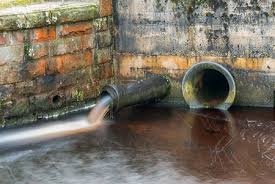


The phenomenon of “black water” refers to polluted water bodies that appear dark due to contamination with organic matter, nutrients, industrial waste, or algae blooms. This issue has become a pressing environmental problem worldwide, driven by factors like industrial pollution, inadequate wastewater treatment, climate change, and poor water management.
Key Challenges
1. Pollution from Agriculture and Industry: Excessive nitrogen and phosphorus runoff from agricultural fertilizers and untreated industrial wastewater are leading causes of water degradation. These pollutants can trigger eutrophication, resulting in harmful algal blooms that deplete oxygen and devastate aquatic ecosystems.
2. Untreated Wastewater: Globally, up to 80% of wastewater is discharged untreated into rivers, lakes, and coastal waters. This contributes to the rise of “emergent pollutants” such as microplastics, heavy metals, and pharmaceuticals, severely affecting water quality and public health.
3. Climate Change Impacts: Climate-induced factors such as prolonged droughts, heatwaves, and unpredictable rainfall exacerbate black water issues. These changes concentrate pollutants in water bodies and foster conditions for algal blooms.
4. Infrastructure Deficits: Many regions, particularly in developing countries, lack the infrastructure needed to treat wastewater or manage water resources sustainably. Even in developed nations like the United States, aging water systems pose risks to both water availability and quality.
Notable Examples
• Africa: Contaminated water is a significant problem, with millions lacking access to clean drinking water and basic sanitation. Factors include climate change, infrastructure gaps, and groundwater depletion.
• India: Overextraction of groundwater, agricultural runoff, and erratic monsoons have created a severe water quality crisis, impacting drinking water and irrigation.
• United States: States like California face water stress from prolonged droughts, over-pumping of groundwater, and rising pollution levels, intensifying black water problems.
Potential Solutions
1. SepticJohn will evaporate all the blackwater and generate electricity through heat exchanger.
2. Improved Wastewater Treatment: Expanding and modernizing wastewater treatment systems can help reduce the discharge of pollutants into natural water bodies.
4. Sustainable Practices in Agriculture: Minimizing fertilizer use and adopting eco-friendly farming techniques can help limit nutrient runoff.
4. Desalination and Water Reuse: Technologies to desalinate water or treat and reuse wastewater can provide alternative clean water sources.
5. Climate Resilience: Policies and infrastructure that adapt to changing weather patterns are crucial for maintaining water quality and availability.
The global black water crisis underscores the urgent need for coordinated efforts at local, national, and international levels to safeguard water resources. Addressing this issue is not only crucial for ecosystem health but also for ensuring water security and public well-being.
